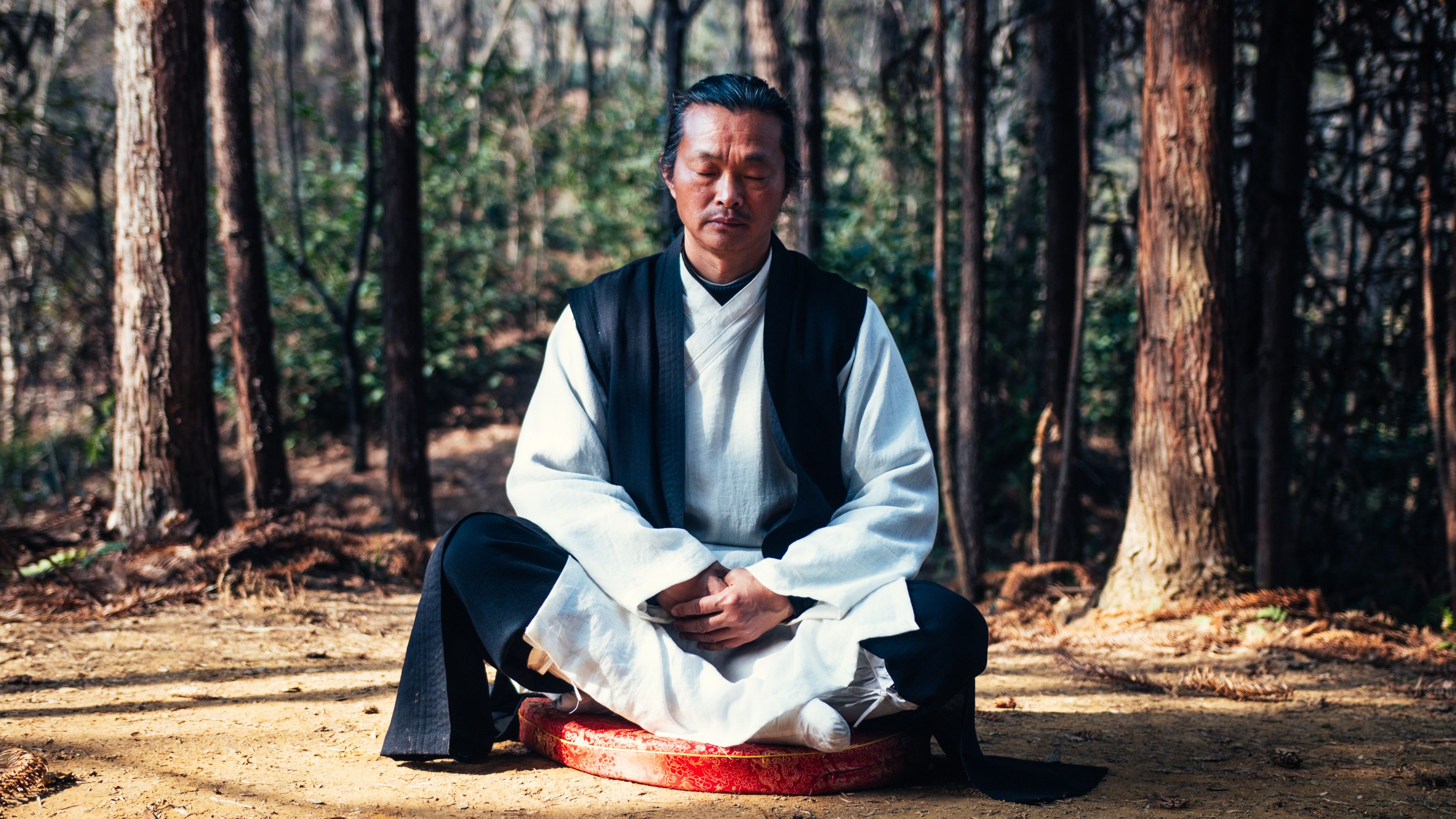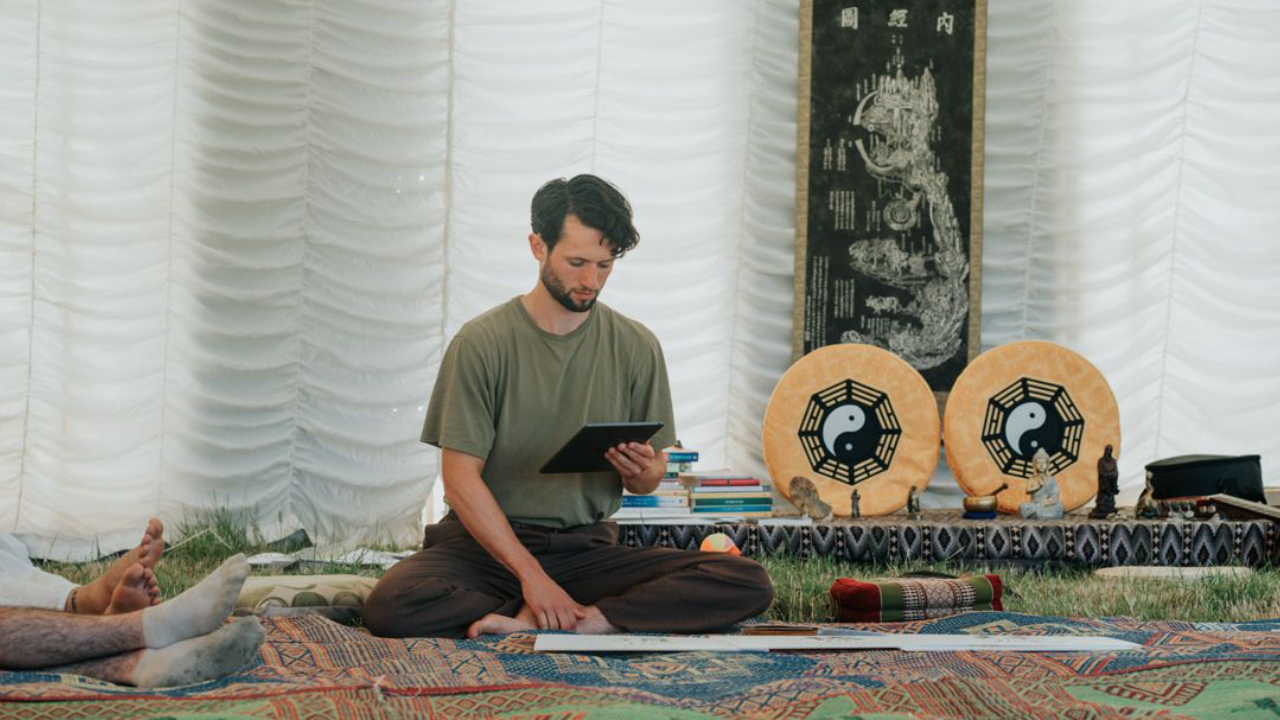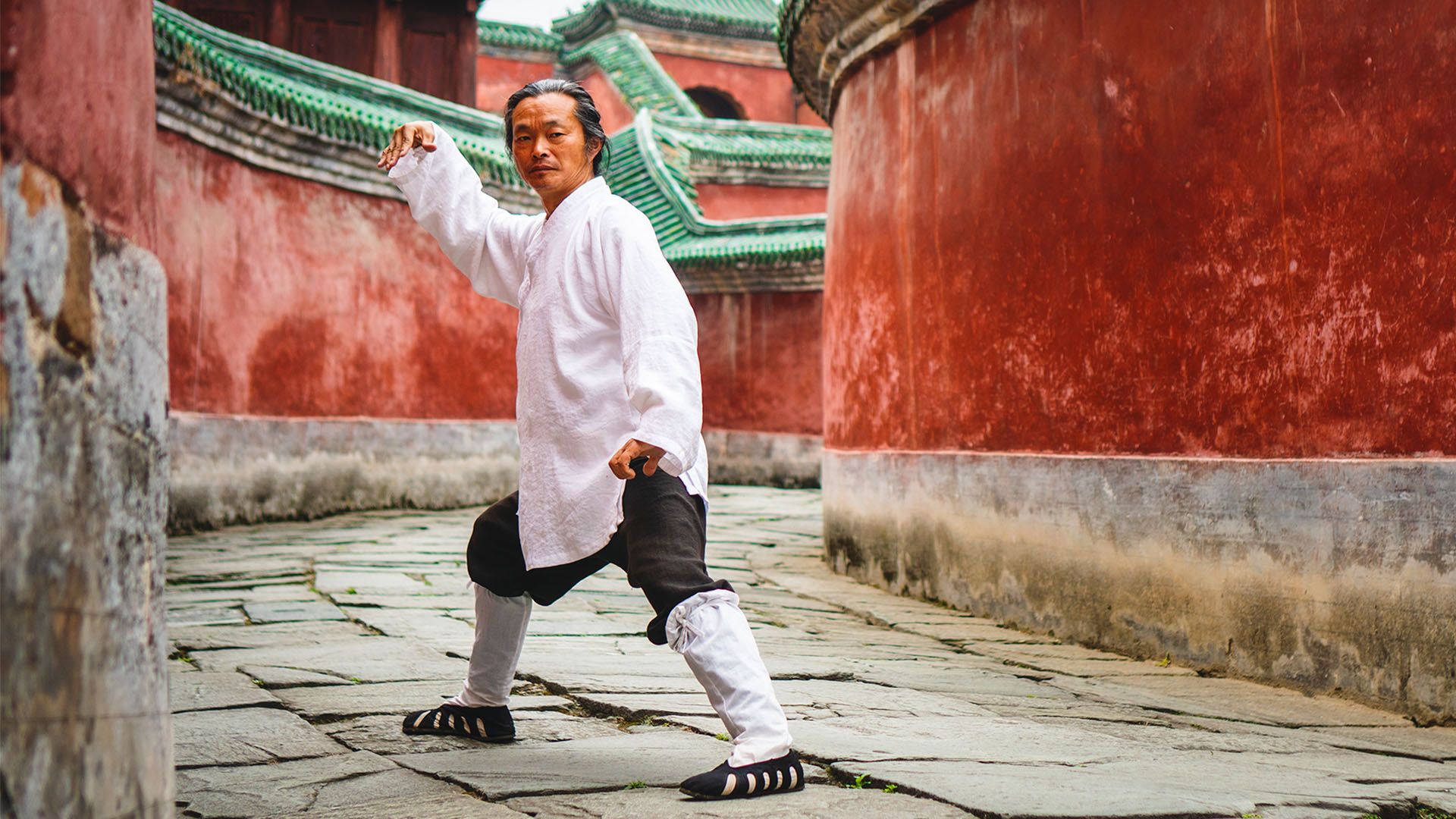Understanding the Principles of Taoism: A Beginner's Guide
May 19, 2023
Have you ever fantasized about traveling back in time? Imagine a device that transports you to a realm of dragons and sovereigns, steeped in venerable wisdom and concealed insights. Picture stepping into ancient China, where the sharp mountain breeze enlivens your senses. As you explore this mystical landscape, imbued with the principles of Taoism, you find yourself among majestic mountains veiled in fog, wandering through verdant bamboo forests, with the soft tune of a bamboo flute resonating through the valley.
Suddenly, a shimmer catches your eye on a rocky ledge. Driven by curiosity, you hasten to unearth a venerable manuscript partially veiled by moss and the passage of time. The manuscript is adorned with calligraphy, a graceful interplay of ink and contemplation on timeworn parchment. As you follow the script's twists and turns, you discern that you're holding an eternal guide to life and the cosmos—a gateway to the profound and enigmatic teachings of Taoism.
Did this ignite your curiosity? Prepare yourself, for we're about to set off on a captivating voyage into the spellbinding domain of Taoism! Let's decipher the mystique and sagacity this ancient philosophy imparts.
Unveiling Taoism: A Tale As Old As Time
Taoism, or Daoism, traces back to ancient Chinese teachings, primarily influenced by the philosopher Lao Tzu. This spiritual and philosophical tradition emphasizes living in harmony with the Tao, signifying the fundamental nature of the universe. Taoists advocate a way of living that aligns with the natural flow, highlighting key principles:
- Emphasis on simplicity and serenity.
- Balance between yin and yang.
- Adapting to life's cycles to achieve spiritual immortality.

Taoism isn't just an ancient Chinese philosophy. It's a vibrant, living tapestry of ideas and practices, each thread woven with wisdom about our existence in its most profound sense. This philosophy offers a way of seeing the world, a lens that reveals a perspective that might seem uniquely refreshing yet strangely familiar.
Why does it feel familiar, you ask? Because Taoism communicates in a language that resonates with the intuitive, primal part of us that often gets overshadowed by the routine of modern life. It gently reminds us to recognize our inherent connection with nature and the cosmos, and the harmony that emerges when we synchronize with the natural rhythms of the universe.
Core Concepts of Taoism
The Tao and Its Significance:
Taoism, a profound Chinese philosophy, sees the Tao as the essential thread of existence. This principle, central to Taoist thought, advocates living in seamless flow with the natural order. Lao Tzu's teachings emphasize that following the Tao enhances harmony in life.
Yin and Yang: The Dualistic Nature:
The concept of yin and yang represents the foundational dualistic elements in Taoist philosophy. These forces are seen as opposites yet complementary, constantly shaping the dynamics of the universe. Their balance is crucial for maintaining the natural order and harmony.
Chi and Its Influence on Life:
In Taoism, 'chi' or life force, is vital for sustaining life's balance. This energy circulates through all living beings and is key to health and vitality. Taoist practices, like Tai Chi, focus on harnessing and optimizing chi flow to enhance well-being.
The Elusive Tao: The Path, The Way, The Lifeforce
Taoism, often spelled Daoism, unfolds as a profound philosophy and a major religion, originating in ancient China. At its heart, Taoism holds that living in harmony with the Tao, the fundamental nature and guiding principle of the universe, is essential. This philosophy, influenced by the venerable Lao Tzu, emphasizes flowing with life's natural currents. By following the Tao, adherents seek to achieve a state of peace and balance, resonating deeply with the rhythms of the universe.
In its religious form, Taoism incorporates various practices such as rituals, meditation, and the veneration of deities, which are integral to Chinese folk religion. This blend of philosophical and religious elements distinguishes Taoism as a unique facet of Chinese culture.
The teachings, encapsulated in seminal Taoist texts like the "Tao Te Ching," explore profound insights into ethics and governance, reflecting Taoism's deep roots in Chinese philosophical thought. Taoist philosophy has permeated various aspects of Chinese life, influencing other schools of thought like Confucianism and Buddhism.
Despite its ancient origins, Taoism continues to be a vital part of world religions, providing insights into living a balanced life. Its core teachings about simplicity, spontaneity, and harmony with nature remain relevant, guiding individuals in their spiritual and everyday lives.
Taoism's timeless wisdom, emphasizing the interconnectedness of all things, invites people all over the world to understand and experience the way of the universe.
The Journey to Inner Tranquillity
Taoism transcends mere philosophy to embody a way of life that promotes harmony with the universe and self-reflection. This tradition enriches one's existence, guiding practitioners to a state of internal peace and equilibrium.
By weaving the tenets of Taoism into our daily routines, we nurture a profound sense of balance. To truly grasp these ancient teachings:
Enroll in our Online Tai Chi Courses led by Master Gu and Explore how Taoist principles shape practices for a healthier mind and body.
Discover how Taoism, an ancient Chinese wisdom, enlightens paths to tranquility.
Let me explain to you the philosophy of balance and harmony.
The Philosophy of Balance and Harmony: A Taoist Masterpiece
In the grand symphony of existence, every note matters and every rhythm counts. It’s all about achieving perfect balance. Consider the silent dance between work and play, or the exchange between chatting and cherishing solitude. Even the interplay between silence and sound scripts the music of our lives. And guess what? Taoism orchestrates this incredible symphony!

Taoism illustrates a vivid canvas where balance and harmony are essential to life. It teaches us that life pulsates with a rhythm as ancient as the universe. Like the ocean's tides, our lives should flow with rhythmic balance.
Finding balance isn’t about teetering between extremes. Taoism shows us when to surge with the current and when to retreat into calm. It’s about knowing when to raise our voices and when to let silence reign.
Conclusion
Imagine a wave in the vast ocean: the thrill of the crest and the calm of the trough coexist, symbolizing exquisite balance. Taoism guides us to seek this ideal point where harmony prevails. By integrating Taoist principles into our lives, we align with the universe's rhythm, leading to inner peace and resilience. This philosophy not only offers a path to personal well-being but also deepens our connection with the world around us. Are you ready to explore how Taoism can transform your approach to life and increase your inner harmony?
For those eager to explore further, consider our online Tai Chi courses. They are currently offered at significant discounts.







